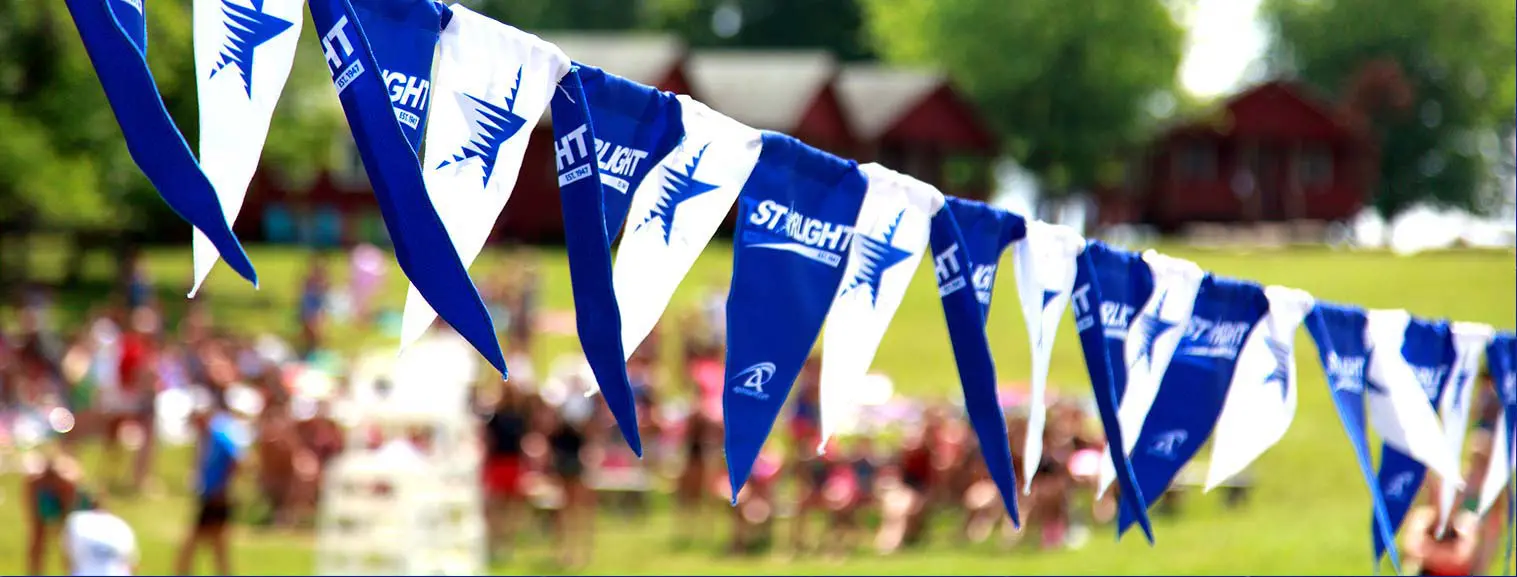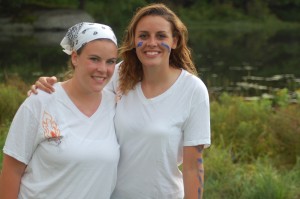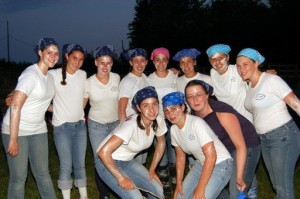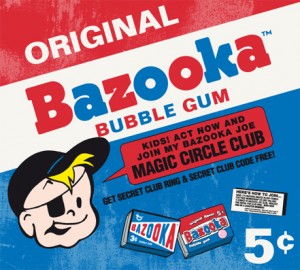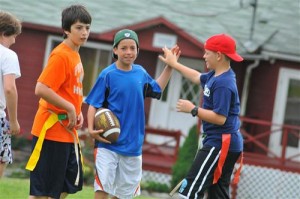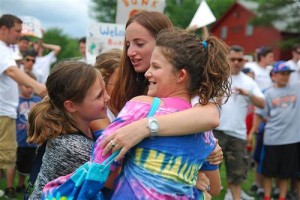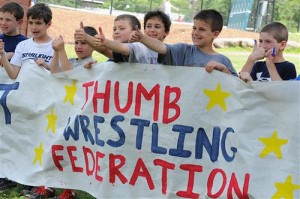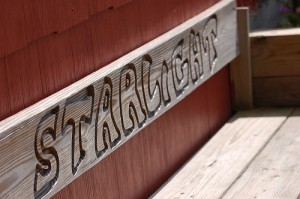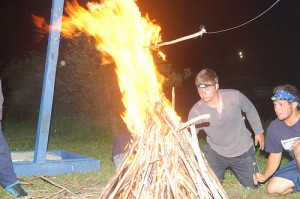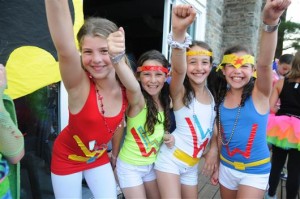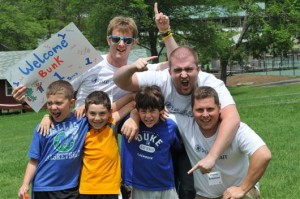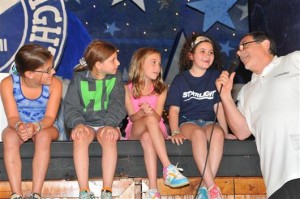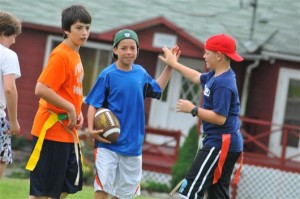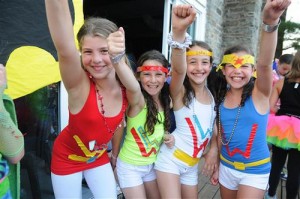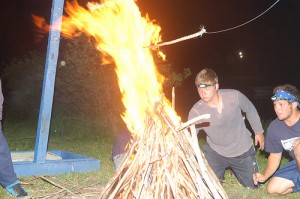 Routines. Everyone has them. For some, they encompass everything that takes place from the time we wake in the morning until we go to bed at night. For others, they come in short bursts throughout the day, such as at mealtimes or bedtime. However, establishing routines as daily parts of our lives is important, especially for children. Childcare experts agree that establishing regular routines for children is essential for healthy development. The Center on the Social and Emotional Foundations for Early Learning reports that “Studies have documented that schedules and routines influence children’s emotional, cognitive, and social development.”
Routines. Everyone has them. For some, they encompass everything that takes place from the time we wake in the morning until we go to bed at night. For others, they come in short bursts throughout the day, such as at mealtimes or bedtime. However, establishing routines as daily parts of our lives is important, especially for children. Childcare experts agree that establishing regular routines for children is essential for healthy development. The Center on the Social and Emotional Foundations for Early Learning reports that “Studies have documented that schedules and routines influence children’s emotional, cognitive, and social development.”
It’s no secret that summer camps provide loose routines that allow room for healthy creative development through structured daily programs and schedules that maintain consistent meal, activity, and bedtimes. Maintaining a routine throughout the summer is also valuable in easing the transition from summer to fall and back into summer again. However, one special aspect of summer camp that is often overlooked is that it helps children learn to understand the difference between routine and ritual—what makes one necessity and the other tradition.
Barbara H. Fiese, Ph.D., Syracuse University, defines routine as something that “involves a momentary time commitment so that once the act is 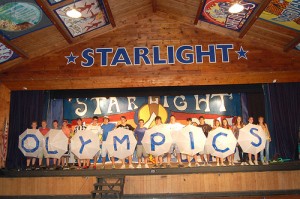 completed, there is little, if any, afterthought.” However, she defines ritual as “symbolic communication” that has “continuity in meaning across generations.” Rituals take place within the home family setting. However, for children, it’s not always clear how to tell the difference between what is done simply to be done and what is done because it’s significant to their heritage. This is where the summer camp ritual takes on a special significance. Even executives such as Michael Eisner have publicly recalled the important role that summer camp rituals have played in their lives.
completed, there is little, if any, afterthought.” However, she defines ritual as “symbolic communication” that has “continuity in meaning across generations.” Rituals take place within the home family setting. However, for children, it’s not always clear how to tell the difference between what is done simply to be done and what is done because it’s significant to their heritage. This is where the summer camp ritual takes on a special significance. Even executives such as Michael Eisner have publicly recalled the important role that summer camp rituals have played in their lives.
Summer camp often draws a distinct line between routine and ritual. Campers understand, for instance, that cleaning their bunks or cabins everyday is part of a routine. That following an activities schedule is part of routine. That hearing TAPS in the evening to signal bedtime is a part of routine. They, too, understand that campfires, however regular, are rituals. They are more than just a fire that they gather around to eat s’mores. Campfires have meaning that goes far beyond the fire itself. The same can be said about opening night shows, closing, and fireworks. Campers understand that these are not just routines done merely to achieve a goal. They’re rituals that make their summer camp the place that it is and them a part of it.
By being able to tell the difference, children are able to accept routine as something that needs to be  done and prevent rituals from simply becoming routine by understanding the value in them. Dr. Fiese says that children will often revisit memories of rituals in order to “recapture some of the positive.” experience.” This perhaps explains why so many camp rituals remain sacred to campers far passed their camping years. At Camp Starlight, several rituals come together throughout the summer to create an atmosphere of family, friends, and tradition:
done and prevent rituals from simply becoming routine by understanding the value in them. Dr. Fiese says that children will often revisit memories of rituals in order to “recapture some of the positive.” experience.” This perhaps explains why so many camp rituals remain sacred to campers far passed their camping years. At Camp Starlight, several rituals come together throughout the summer to create an atmosphere of family, friends, and tradition:
The rituals begin almost from the moment campers arrive. The Opening Night show is a first night tradition in which the staff formally introduces itself in always creative and entertaining ways, veteran campers and staff reacquaint themselves with some of their favorite sing-along songs (Singin’ in the Rain, Can’t Smile without You, and the Starlight Alma Mater, anyone?), and campers and staff who are new to Starlight become familiar with one of the most symbolic and important gathering places on the Camp Starlight campus—The Starlight Playhouse. For everyone, it’s the initiation into the Starlight family.
Campfires play an important role at Camp Starlight throughout the summer as well. At the beginning of camp, they help campers and counselors 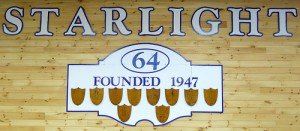 alike bond by setting a theme and introducing Starlight values. At the end of camp, as the scenes of bunk plaque presentations to directors Allison and David, they provide closure. Bunk plaques are emblems through which each bunk has the opportunity to show what its campers and counselors are taking away from the summer. The Starlight Dining Room is adorned with them and everyone at Starlight spends countless hours reminiscing about and reflecting on their significance.
alike bond by setting a theme and introducing Starlight values. At the end of camp, as the scenes of bunk plaque presentations to directors Allison and David, they provide closure. Bunk plaques are emblems through which each bunk has the opportunity to show what its campers and counselors are taking away from the summer. The Starlight Dining Room is adorned with them and everyone at Starlight spends countless hours reminiscing about and reflecting on their significance.
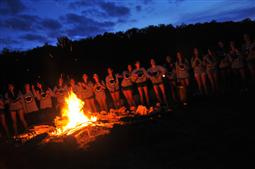 The end of the summer at Camp Starlight is full of rituals that bring the fun to a meaningful close. Every year, around the first week of August, campers can be heard chanting “1,3, 5, 6, we want Olympics!” The always secretive Olympic break is a hot topic of conversation from the day campers arrive and, inevitably, one of the most exciting moments of each summer. But perhaps the most unique thing about Olympics is that even though it’s a competition, it’s actually about coming together as a family and respecting how each and every individual makes valuable contributions to that family. Within Olympics are such valued rituals as the always crazy and exciting Apache Relay, which is a race in which campers are given the opportunity to demonstrate what they’ve learned over the summer; Rope Burn, a sacred event for Senior campers and one that many former campers list for years to come as one of the most significant events of their camp careers; and Sing, an event that comes near the end of Olympics and involves the two Olympic teams dueling through song. The themes are always awe inspiring, the lyrics nothing less than impressive, and the sets fabulous….especially considering that such a wonderful show is put together in less than a week by some very passionate campers and staff members. Sing never fails to be as emotionally significant as it is entertaining.
The end of the summer at Camp Starlight is full of rituals that bring the fun to a meaningful close. Every year, around the first week of August, campers can be heard chanting “1,3, 5, 6, we want Olympics!” The always secretive Olympic break is a hot topic of conversation from the day campers arrive and, inevitably, one of the most exciting moments of each summer. But perhaps the most unique thing about Olympics is that even though it’s a competition, it’s actually about coming together as a family and respecting how each and every individual makes valuable contributions to that family. Within Olympics are such valued rituals as the always crazy and exciting Apache Relay, which is a race in which campers are given the opportunity to demonstrate what they’ve learned over the summer; Rope Burn, a sacred event for Senior campers and one that many former campers list for years to come as one of the most significant events of their camp careers; and Sing, an event that comes near the end of Olympics and involves the two Olympic teams dueling through song. The themes are always awe inspiring, the lyrics nothing less than impressive, and the sets fabulous….especially considering that such a wonderful show is put together in less than a week by some very passionate campers and staff members. Sing never fails to be as emotionally significant as it is entertaining.
A banquet and a fireworks display (known as the “burning of the lake”) close out the summer. Banquet is a family meal. It’s a time when everyone formally says, “thank you” for all of the great times over the summer and exemplary staff members are honored. Banquet is even more significant for the Upper Senior Girls, who work tirelessly every year to come up with a theme, décor, and a menu. The “burning of the lake” isn’t just any fireworks display. It’s symbolic in many ways. It’s a night when everyone says goodbye, when the camp alma mater takes on a different kind of significance for many older campers, and the year is quite literally burned away to make room for the next.



